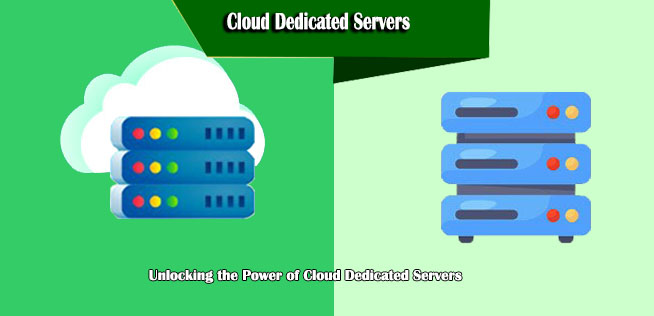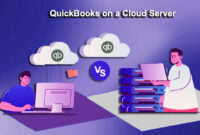Unlocking the Power of Cloud Dedicated Servers
In the rapidly evolving landscape of digital infrastructure, businesses are increasingly turning to cloud dedicated servers as a cornerstone of their IT strategy. This shift represents a departure from traditional hosting models towards more scalable, secure, and efficient solutions. In this article, we explore the concept of cloud dedicated servers, their benefits, and why they are becoming a preferred choice for modern enterprises.
What is a Cloud Dedicated Server?
A cloud dedicated server combines the advantages of both dedicated servers and cloud computing. Unlike shared hosting where resources are distributed among multiple users, a dedicated server provides exclusive use of hardware and computing resources to a single tenant. This isolation ensures enhanced performance, security, and control over the server environment.
Cloud dedicated servers take this concept further by leveraging the scalability and flexibility of cloud infrastructure. They are provisioned, managed, and maintained by cloud service providers (CSPs), offering benefits such as on-demand resource allocation, rapid scalability, and high availability. This hybrid approach bridges the gap between traditional dedicated hosting and cloud computing, catering to the diverse needs of businesses ranging from startups to large enterprises.
Advantages of Cloud Dedicated Servers
1. Performance and Reliability
Cloud dedicated servers guarantee high performance by dedicating resources solely to the tenant. This exclusivity ensures that computing power, memory, and storage are consistently available without contention from other users. Businesses can optimize their applications and websites for maximum performance, delivering a seamless user experience.
Additionally, cloud infrastructure enhances reliability through redundant components and failover mechanisms. In case of hardware failures or network issues, automated systems redirect traffic and resources to ensure minimal downtime, thereby maintaining business continuity.
2. Scalability
Scalability is a defining feature of cloud dedicated servers. Businesses can easily scale up or down based on fluctuating demands without the need for physical hardware upgrades. This flexibility allows organizations to respond quickly to market changes, seasonal spikes, or growth phases, ensuring that resources are efficiently utilized without over-provisioning.
Cloud environments facilitate vertical scaling (increasing resources within the same server) and horizontal scaling (expanding across multiple servers or data centers), providing unparalleled agility to adapt to evolving business requirements.
3. Security
Security is a paramount concern in the digital age, and cloud dedicated servers offer robust measures to protect data and applications. CSPs implement stringent security protocols, including firewalls, encryption, and intrusion detection systems, to safeguard against cyber threats and unauthorized access.
Moreover, dedicated resources reduce the risk of security breaches associated with shared hosting environments. Businesses can implement customized security policies, audit logs, and access controls to reinforce their defense posture and comply with industry regulations.
4. Cost Efficiency
While dedicated servers traditionally required substantial upfront investments in hardware and maintenance, cloud dedicated servers operate on a pay-as-you-go model. This cost-effective approach eliminates capital expenditures and allows businesses to budget more effectively by paying only for the resources they consume.
Additionally, economies of scale achieved by CSPs result in lower operational costs, as they manage infrastructure maintenance, updates, and support. This enables businesses to allocate financial resources towards innovation and growth initiatives rather than infrastructure management.
Use Cases and Applications
Cloud dedicated servers cater to a wide range of use cases across various industries:
- E-commerce: Handling high traffic volumes during sales events or seasonal promotions.
- Media and Entertainment: Streaming services requiring consistent performance and uptime.
- Finance: Hosting critical applications that demand stringent security measures and compliance.
- Healthcare: Storing and processing sensitive patient data in compliance with privacy regulations.
- Gaming: Supporting multiplayer gaming environments with low latency and high throughput.
Choosing the Right Provider
Selecting a reliable CSP is crucial for maximizing the benefits of cloud dedicated servers. Consider the following factors when evaluating providers:
- Performance Guarantees: Service level agreements (SLAs) that ensure uptime, response times, and performance benchmarks.
- Support and Maintenance: 24/7 technical support, proactive monitoring, and regular updates to ensure system integrity and reliability.
- Scalability Options: Ability to seamlessly scale resources as your business grows or experiences fluctuations in demand.
- Security Measures: Robust security protocols, data encryption, and compliance with industry standards (e.g., GDPR, HIPAA).
Future Trends
As technology evolves, cloud dedicated servers are poised to play a pivotal role in shaping the future of digital infrastructure. Emerging trends such as edge computing, artificial intelligence (AI), and Internet of Things (IoT) will further drive demand for scalable, high-performance solutions that can support the next generation of applications and services.
Conclusion
Cloud dedicated servers represent a paradigm shift in IT infrastructure, offering unmatched performance, scalability, security, and cost efficiency. By combining the reliability of dedicated servers with the flexibility of cloud computing, businesses can achieve their operational goals while focusing on innovation and growth. As organizations continue to embrace digital transformation, cloud dedicated servers will remain a cornerstone of modern IT strategies, empowering enterprises to thrive in an increasingly competitive global marketplace.




